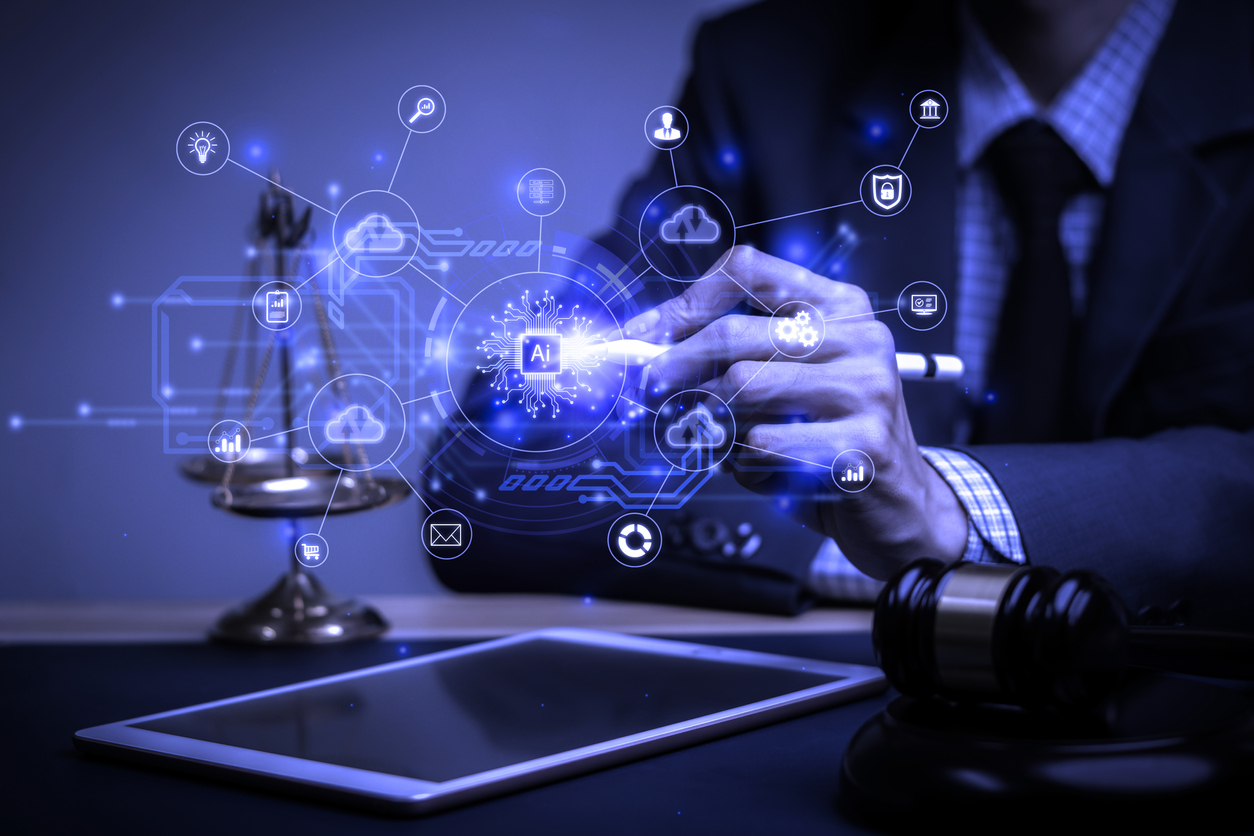
How ChatGPT is Revolutionizing the Legal Industry
Artificial intelligence (AI) has recently emerged from the realm of science fiction as a very real and transformative force in a wide range of industries—and the legal sector is no exception to this. With the advent of ChatGPT, an advanced language model developed by OpenAI, the legal industry is undergoing significant operational change.
While AI-driven robots won’t be representing clients in court any time soon, AI technology is reshaping the efficiency and precision of any number of traditionally time-consuming tasks in the legal profession. In this article, we’re going to explore how ChatGPT, in particular, is proving to be an exceptionally useful tool for lawyers.
A brief introduction to ChatGPT
ChatGPT is an innovative language model powered by deep learning algorithms. Trained on extensive datasets from the internet, it excels in generating human-like text based on the input it receives. Its versatility makes it an ideal tool for the legal industry. With its capabilities extending across a multitude of tasks, it offers remarkable support resources to legal professionals.
Legal research made effortless
Legal research demands exhaustive searches through everything from complex statutes to court decisions. ChatGPT is a remarkably powerful ally in this regard with its ability to swiftly extract pertinent information and distill key insights. Its capacity to comprehend intricate legal language enables professionals to focus on strategic thinking, significantly reducing the time spent on data retrieval. Moreover, ChatGPT’s ability to synthesize information from diverse sources allows it to present a holistic view of a legal issue, facilitating a more comprehensive understanding.
Drafting legal documents with precision
The meticulous process of drafting such documents as contracts and pleadings can be hugely time-consuming. ChatGPT provides valuable assistance in crafting documents with immense precision. By offering suggested language based on input parameters, it ensures coherence and adherence to legal standards, mitigating the risk of errors and, again, freeing up time for more strategic aspects of a lawyer’s work.
Enhancing client interaction
Needless to say, effective communication is key to the success of any legal business, and ChatGPT enhances this by creating chatbots tailored for law firms. These chatbots are designed to handle routine client queries, provide updates on case statuses, and offer general legal guidance. Automating these interactions not only improves client satisfaction by providing timely and accurate information but also allows legal professionals to allocate more time to high-value tasks.
Legal analysis and case strategy
ChatGPT’s analytical prowess aids significantly in legal analysis and case strategy development. By inputting case details, legal precedents, and relevant statutes, it provides insights into potential arguments, highlights pertinent case law, and even suggests strategic approaches. This not only enhances the decision-making process but also contributes to the formulation of robust and effective case strategies.
Additionally, ChatGPT’s ability to simulate various legal scenarios allows legal professionals to anticipate challenges and evaluate potential outcomes. This foresight proves invaluable in crafting proactive legal strategies and mitigating risks.
Continuous learning and adaptation
One of ChatGPT’s strengths lies in its capacity for continuous learning. It stays abreast of the latest legal developments, adapting its knowledge base accordingly. This dynamic learning ensures that legal professionals using ChatGPT have access to the most current and relevant information at all times, resulting in more accurate legal advice and decision-making.
The role of ChatGPT in legal education
Beyond its application in legal practice, ChatGPT holds immense promise in legal education also. It can serve as a valuable tool for students, providing instant access to vast legal knowledge, aiding in research, and offering guidance on legal writing. This not only enhances the learning experience but also prepares future legal professionals for a tech-enabled legal landscape.
Addressing ethical and privacy concerns
The integration of ChatGPT in the legal industry, like any AI tool, raises ethical and privacy concerns. Legal professionals must be vigilant in safeguarding sensitive information and ensuring compliance with legal and ethical standards. Implementing robust data security measures and regularly updating privacy protocols is crucial to harnessing the full potential of ChatGPT without compromising confidentiality.
Future implications and challenges
While ChatGPT presents unprecedented opportunities for the legal industry, there are certainly challenges and considerations that need to be addressed. The potential for biases in AI models, ethical concerns surrounding AI decision-making, and the need for transparent AI systems are critical aspects that the legal community must deal with as they embrace the technology.
The evolving nature of AI regulations and standards poses challenges in integrating ChatGPT seamlessly into legal workflows. Legal professionals must stay informed about the regulatory landscape and work collaboratively with policymakers to ensure that the use of AI aligns with ethical and legal standards.
Conclusion
The integration of ChatGPT in the legal industry marks a significant leap forward, offering a vast scope of applications that enhance efficiency and elevate the quality of legal services. From expediting legal research to automating client interactions and facilitating strategic decision-making, ChatGPT is proving to be a catalyst for positive change. While challenges remain in the use of AI technology in the legal sector, the benefits it brings mean these issues are unlikely to stand in its way. In short, AI—and ChatGPT, in particular—are here to stay, and you would be well advised to get used to working with it.
Discover the power of ChatGPT with AI Applied
A team of scientists, engineers, and dedicated professionals, AI Applied helps organizations harness artificial intelligence for growth, improved decision-making, and tackling intricate challenges responsibly. By empowering clients with cutting-edge AI solutions that uphold the highest ethical standards, we drive success and responsible technological advancement.
To learn more about Ai Applied and how we can help your organization benefit from AI, please don’t hesitate to contact us.
